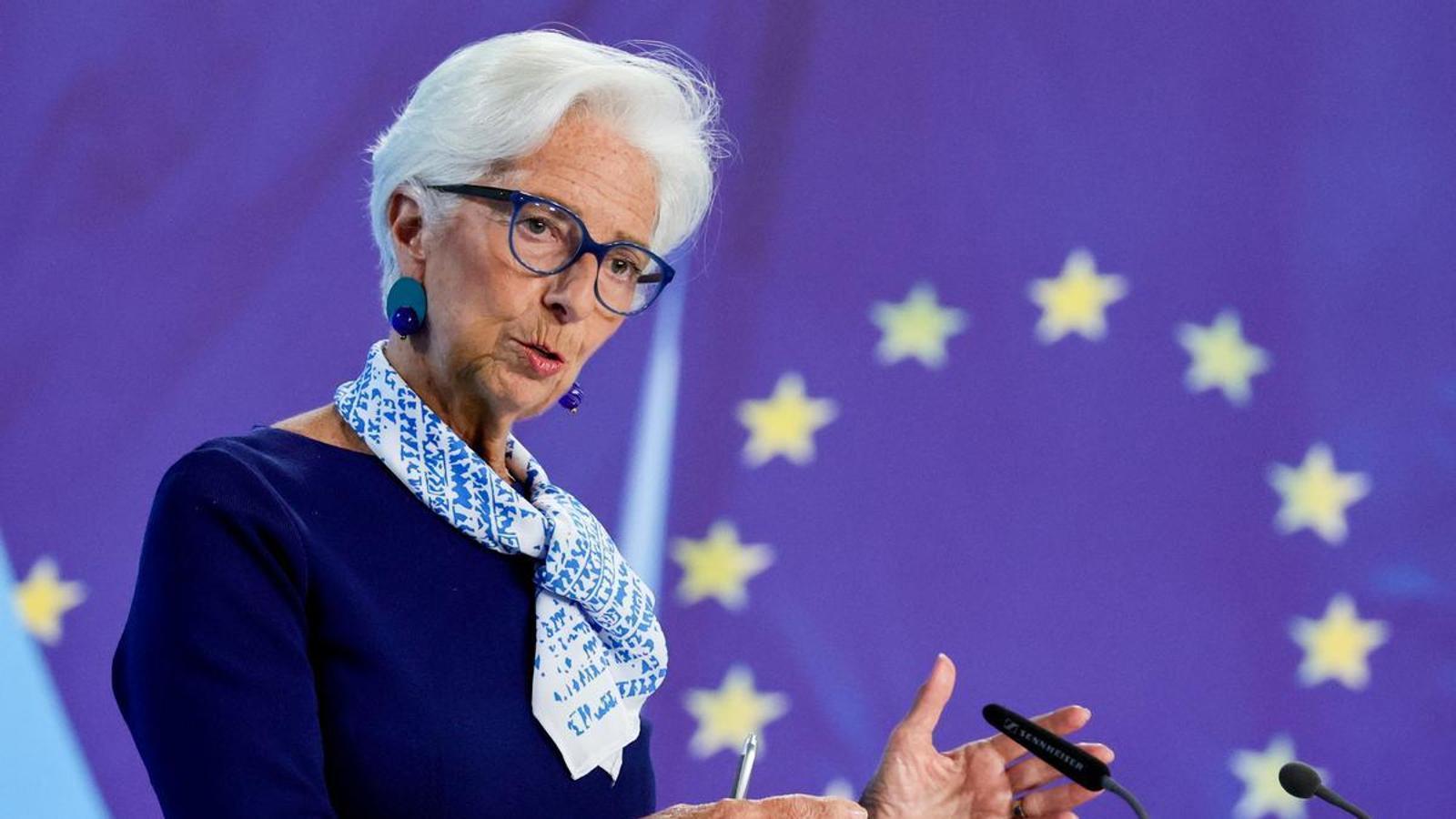The ECB halts rate cuts pending Trump's announcement.
The banking institution decides not to cut the price of money for the first time in 2025 and leaves it at 2%.


BrusselsNo surprises in Frankfurt. Given the uncertainty surrounding the White House, the European Central Bank (ECB) has avoided any missteps and decided to keep interest rates at 2% while awaiting the outcome. the trade war between the European Union and the United StatesThis is the first time in 2025 that the banking institution has decided not to cut the price of money, following eight consecutive meetings of the ECB's governing council in which it had agreed to reduce it. "The environment remains exceptionally uncertain, particularly due to trade disputes," ECB President Christine Lagarde stated at a press conference.
The banking institution wants to wait and see how the trade conflict between the European Union and the United States develops and, should Donald Trump again scupper a potential agreement, have greater room for maneuver. Lagarde has asserted that the eurozone economy's performance, and therefore also the organization's upcoming interest rate decisions, could be directly affected by the tariffs the White House ultimately applies to European products.
If the trade agreement the EU and the US are finalizing ultimately fails to be finalized, the ECB believes it is most likely that the economies of the single currency countries will slow down because an increase in tariffs would lead to a reduction in exports and, by extension, demand. This would give the organization more room to cut the price of money and try to boost economic activity in the eurozone.
Regarding inflation, Lagarde again pointed out that an open trade war between the EU and the US could lead to a reduction in inflation due to a weakening of economic activity. However, this Thursday she added that there are also factors that could cause the opposite effect and that, for example, "greater fragmentation of global supply chains could cause" prices to rise in eurozone countries. Another effect would be higher prices for US products imported into the EU, although this effect would be more pronounced in the US, which buys much more in Europe than it sells.
On the other hand, if Brussels and Washington finally reach an agreement, Frankfurt is confident that its latest economic forecasts will be met. Regarding inflation, it estimates that it will remain at 2% this year—the ECB's target—1.6% next year, and 2% in 2027. And core inflation—which excludes the most volatile products, such as fresh food and energy products—will remain slightly stable. This year, at 2.4%, and at 1.9% in 2026 and 2027.
Regarding economic growth, the ECB suggests it will remain modest: 0.9% this year, 1.1% next year, and 1.3% in countries that have also returned to the eurozone and the European Commission in the areas of infrastructure and defense could contribute to an increase in economic activity and inflation. In any case, Lagarde said that a "small deviation" from the inflation target of 2% would not change the ECB's upcoming interest rate decisions.
It's worth remembering that interest rates are the ECB's main tool to try to curb price increases—if they are raised, as in the midst of an inflationary crisis—or to boost the economy—if they are lowered, as in times of recession. For this reason, in the worst-case scenario, Lagarde would still have the opportunity to react and further lower interest rates to try to alleviate the consequences of a trade war with the United States and stimulate economic activity. In any case, Lagarde has avoided predicting what the rate decision will be at the upcoming meetings of the ECB's governing council and has insisted that, as always, it will depend on the macroeconomic data available at that time.
Waiting for the negotiations
The ECB's governing council meeting took place precisely the day after the European Union and the United States announced they were close to finalizing a trade agreement with 15% tariffs on European exports to the US. However, the agreement is not yet sealed, and Brussels is wary of Trump's confidence until he has signed it. This wouldn't be the first time the New York magnate has backed out at the last minute. In fact, the EU approved a tariff countermeasure this Thursday worth €93 billion, which it would implement if the agreement wasn't finalized and the White House ultimately approved it. The 30% customs duties on European imports that Trump threatened Two weeks ago.
Nevertheless, Lagarde advocated for an agreement to be reached between the two powers "as soon as possible" to end this "uncertainty." However, the ECB president claimed that the eurozone economy is proving to be "resilient" despite the international context and "trade tensions." "We are in a good place," the French leader said.
